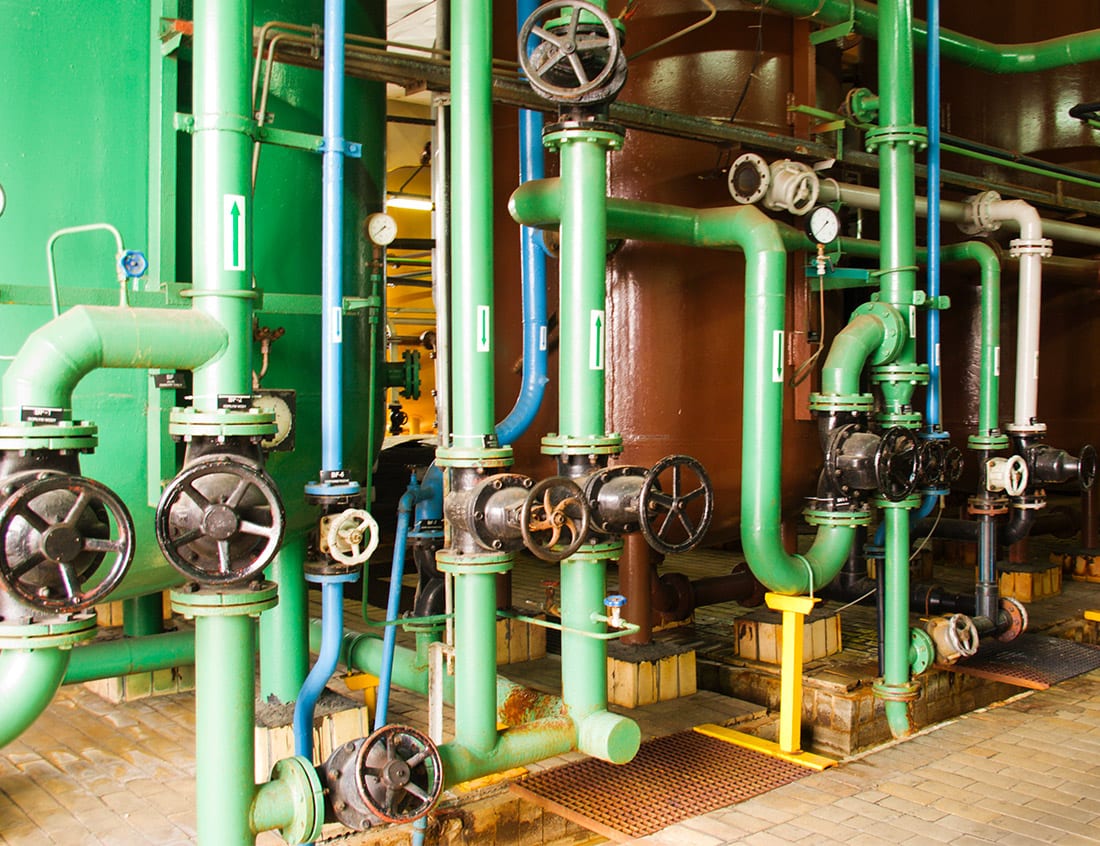Industrial Boiler Treatment: Top Chemicals & Best Practices
In many industrial settings, boilers serve as the backbone of production, delivering steam or hot water for a range of processes. Yet, the presence of water impurities—from hardness to dissolved gases—can cause scaling, corrosion, and sludge buildup that reduce efficiency and drive up operating costs. By selecting the right boiler treatment chemicals and adhering to best practices, you can maximize performance while preventing costly downtime.
The Impact of Water Impurities
Industrial water contains a variety of minerals, gases, and suspended solids. Some pose serious threats to boiler integrity and efficiency:
-
Hardness (Calcium & Magnesium Ions):
- Cause scale, insulating heat transfer surfaces and lowering efficiency.
-
Corrosion-Related Contaminants (Oxygen, Chlorides, Sulfates):
- Attack metal components, leading to leaks or full-blown system failures.
-
pH Imbalances:
- Acidity or high alkalinity can corrode metal parts, weakening the boiler structure.
-
Sludge & Suspended Solids:
- Clog pipes and impair water flow, resulting in uneven heating and elevated energy usage.
Key Boiler Treatment Chemicals
-
Boiler Water Alkalinity Builders
- Purpose: Elevate pH to reduce corrosion risk and improve scale prevention.
- Common Examples: Sodium hydroxide, ammonia.
-
Corrosion Inhibitors
- Purpose: Create a protective film on metal surfaces to minimize corrosion from oxygen or other aggressive ions.
- Common Examples: Film-forming amines, phosphates.
-
Anti-Scale Agents
- Purpose: Bind to hardness ions or alter their crystal structure to prevent scale deposition.
- Common Examples: Chelating agents, polyphosphates.
-
Oxygen Scavengers
- Purpose: Remove dissolved oxygen—a major cause of corrosion—from feedwater.
- Common Examples: Hydrazine, sulfite-based compounds.
-
Sludge Inhibitors & Dispersants
- Purpose: Prevent sludge formation and coagulation, ensuring smooth flow and minimal buildup of solids.
- Common Examples: Polyacrylates, lignosulfonates.
Choosing the Right Chemical Program
Boiler treatment isn’t a one-size-fits-all approach; multiple variables guide your selection:
- Boiler Type & Operating Conditions: Steam pressure, temperature, and feedwater composition will influence chemical needs.
- Feedwater Analysis: Evaluate parameters like hardness, conductivity, alkalinity, and dissolved oxygen to pinpoint issues.
- Regulatory & Environmental Constraints: Some chemicals may be restricted due to discharge or environmental impact.
Best Practices for Effective Boiler Treatment
-
Regular Water Testing
- Monitor pH, conductivity, hardness, and other critical metrics to fine-tune chemical dosages.
- Catch abnormalities early to prevent scale or corrosion from worsening.
-
Blowdown & Sludge Removal
- Periodically discharge water containing concentrated solids to keep impurities from accumulating.
- Proper blowdown intervals help maintain stable water chemistry.
-
Scheduled Cleaning & Inspections
- Remove any deposits on surfaces and assess mechanical integrity.
- Early detection of worn or corroded components helps avoid sudden failures.
-
Professional Guidance
- Partner with a qualified water treatment expert to customize a plan for your unique system.
- Leverage their knowledge of advanced chemicals, local regulations, and cutting-edge technologies.
Benefits of a Well-Maintained Industrial Boiler
- Optimized Efficiency: Clean heat transfer surfaces and balanced chemistry reduce energy consumption.
- Extended Equipment Lifespan: Less corrosion and scale translate to fewer repairs and replacements.
- Consistent Performance: A stable boiler system supports uninterrupted production, lowering the risk of costly downtime.
- Regulatory Compliance: Meeting industry and environmental guidelines helps avoid fines or legal challenges.
Additional Resources
- ASME Boiler and Pressure Vessel Code
- American Water Works Association (AWWA)
- National Association of Boiler Inspectors and Repairers (NABIR)
An industrial boiler demands more than just routine checks; it requires a strategic combination of the right chemicals, ongoing monitoring, and preventative maintenance. By understanding the specific challenges posed by water impurities and tailoring your treatment approach accordingly, you’ll ensure higher efficiency, reduced operational costs, and a longer lifespan for your critical steam-generation infrastructure.
About The Author
Nick Piskura is the Marketing and Web Development Specialist at ChemREADY who utilizes expertise in digital marketing strategies to provide knowledgeable insights in each segment of our business. Nick provides insights through web development and multimedia resources that support ChemREADY’s full range of services, including Legionella management, ANSI/AAMI ST108 compliance, boiler and cooling tower treatment, wastewater processing, and industrial water quality solutions.

